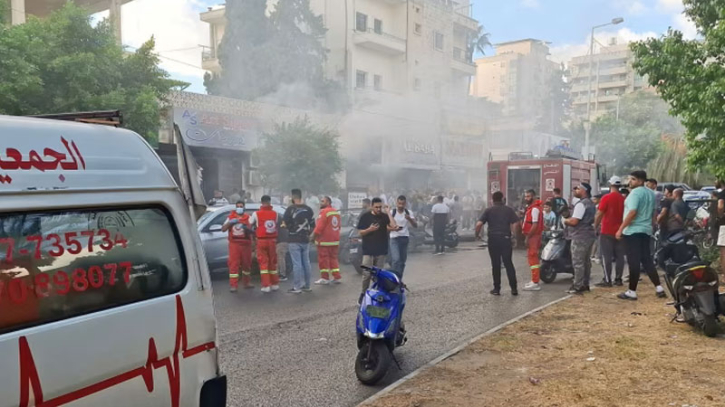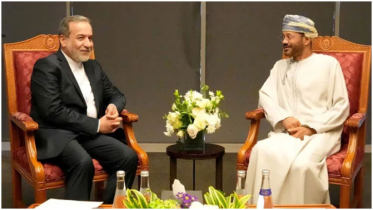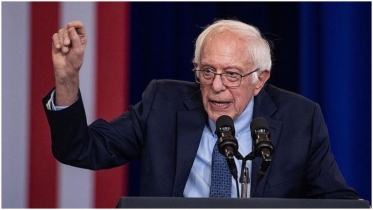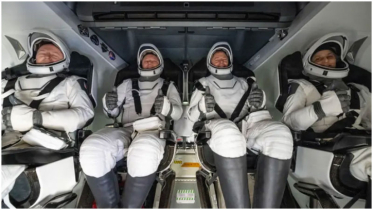Hezbollah walkie-talkies explode in Lebanon in 2nd day of blasts

Handheld walkie-talkies and other wireless communication devices used by Hezbollah were detonated across Lebanon on Wednesday, killing at least 14 people and injuring at least 450, a day after thousands of pagers exploded in the country.
The fresh blasts compounded the shock in Lebanon from the initial, unprecedented attack via electronic devices on Tuesday, which Hezbollah blamed on Israel, vowing revenge. The militant group and Israel are already engaged in a war of attrition across the Israel-Lebanon border, which has raised fears of a broader conflict.
The latest deaths and injuries brought the toll from the two days of blasts to 26 dead, including at least two children, and more than 3,000 injured. Almost 300 of those wounded in Tuesday’s blasts remained in a critical condition on Wednesday following bloody scenes across Lebanon.
Israeli defence minister Yoav Gallant, speaking at an air base in Israel on Wednesday, signalled that the country was entering a new phase of fighting on its northern border with Lebanon.
He spoke after the Israeli army’s 98th Division — which includes paratroopers and commando units — was ordered to move to Israel’s northern border, according to a person familiar with the matter.
“The ‘centre of gravity’ is moving north, meaning that we are allocating forces, resources and energy for the northern arena,” Gallant said. “I believe that we are at the start of a new phase in the war and we must adapt.”
Prime Minister Benjamin Netanyahu said in a brief video statement on Wednesday: “I’ve already said [that] we will return the residents of the north securely to their homes. And this is precisely what we will do.”
Israel has not commented directly on the blasts.
Hezbollah has yet to comment on Wednesday’s explosions, but blamed Tuesday’s blasts on Israel. The group is reeling from the co-ordinated attack, which dealt a humiliating blow and triggered widespread panic and confusion.
Hezbollah’s leader, Hassan Nasrallah, is expected to address the unprecedented security breaches in a speech on Thursday.
Many across Lebanon are anxiously awaiting the group’s response to the co-ordinated attacks. But with its communications networks largely struck down, experts said it was hard to see how it could launch an immediate retaliation.
The fresh blasts came as the UN’s high commissioner for human rights, Volker Türk, said of the pager attacks that “the fear and terror unleashed is profound”. He urged world leaders to step up “in defence of the rights of all people to live in peace and security”.
Türk said the targeting of thousands of people, whether civilians or members of armed groups, without knowledge of who held the devices or their locations was a violation of international law.
Hezbollah and Israel have been engaged in cross-border fire since Hamas’s October 7 attack on Israel. On Wednesday Hezbollah said it had launched rockets at Israeli artillery positions across the frontier, the first strike since Tuesday’s attack raised the prospect of a wider regional conflagration.
Asked about Tuesday’s explosions, US secretary of state Antony Blinken said on Wednesday in Cairo that he was focused on agreeing a ceasefire deal in Gaza that could also bring calm to the Israel-Lebanon border.
When the US and other mediators believed they were making progress on such a deal, Blinken said, they had often “seen an event that... threatens to slow it, stop it, derail it”.
Wednesday’s explosions - including from handheld radios - took place in southern Beirut, Tyre, Nabatiyeh, Hermel and the Bekaa Valley, as well as in dozens of villages and towns in the south, according to the state National News Agency and emergency responders. The NNA also said there was heavy Israeli surveillance drone traffic over the country’s south. These are all areas with a heavy Hezbollah presence.
On Wednesday evening the Lebanese army conducted controlled detonations of handheld radios in Beirut.
Gruesome images circulated on social media for the second day running, showing fire-damaged cars and motorbikes, homes and shops ablaze, and bloodied people being rushed to hospitals in ambulances.
At least one explosion on Wednesday took place near a funeral in Beirut’s southern suburb of Ghobeiry for several of the people killed on Tuesday. Thousands of mourners had gathered for the burial of a child, two Hezbollah members and a health worker.
That ceremony — already tense — was interrupted by a loud boom that echoed over the procession, sending mourners stampeding away in fear.
As ambulance sirens sounded, a man ran through the crowd shouting: “It exploded in his hand.” A Lebanese soldier stationed near the funeral, where weeping family members held up images of their slain relatives, said that “two devices had exploded”.
.png)




